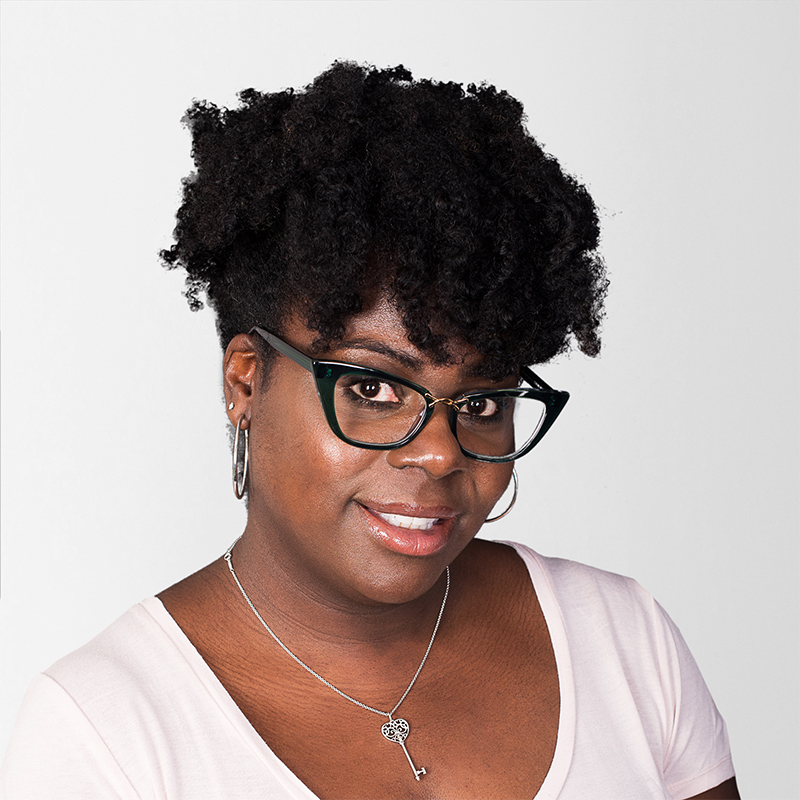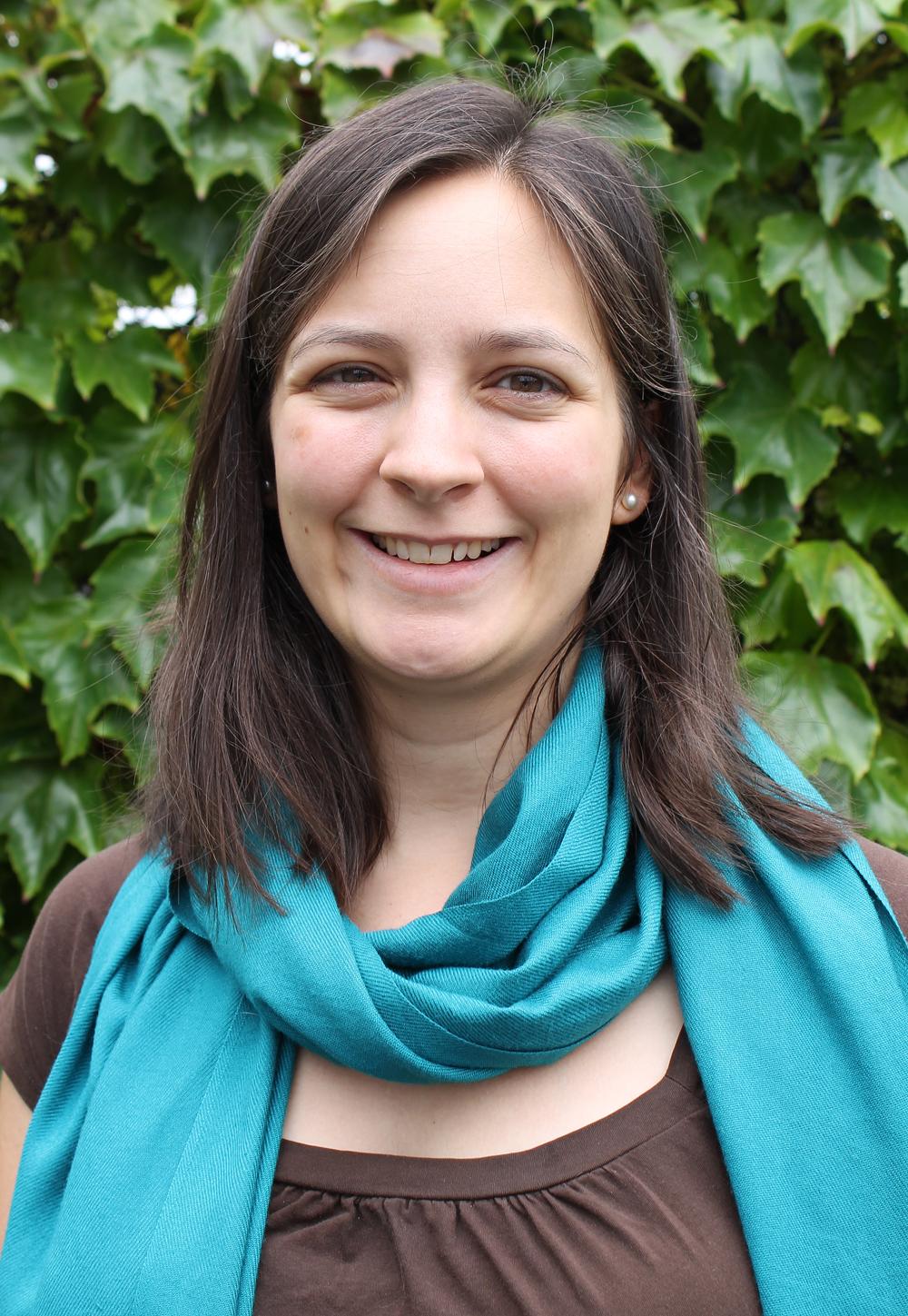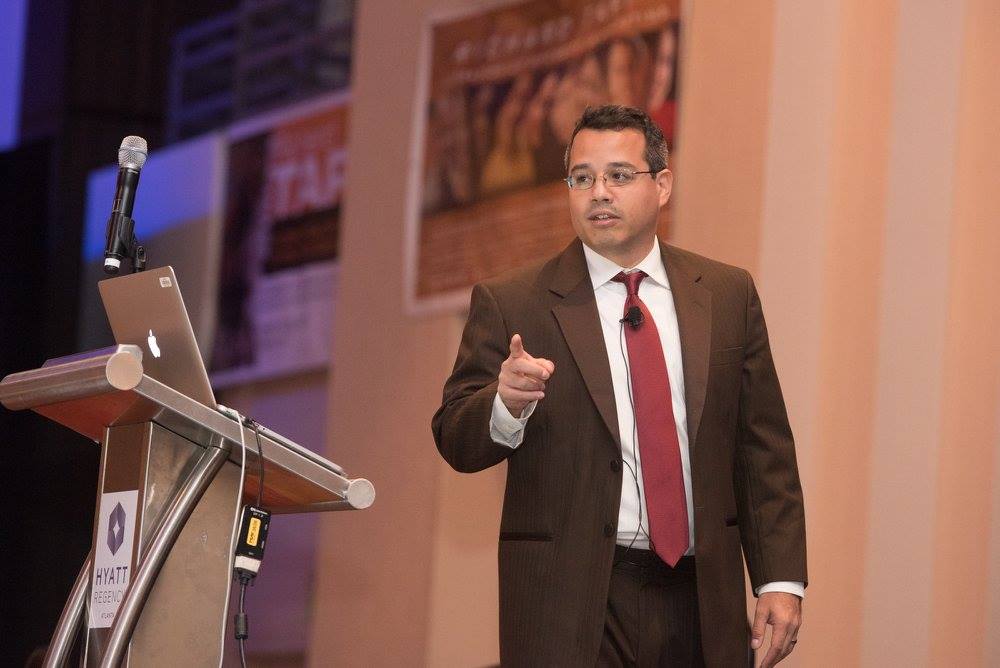|
May 2020
Volume 10, Issue 5
|
Welcome to the May 2020 issue of the CMD-IT newsletter.
Highlighted in this issue are our Tapia2020 General Chair Quincy Brown and our Accessibility Chair Brianna Blaser. They will share their unique paths to working to increase the diversity in computer science.
We recently announced we will be taking the 2020 ACM Richard Tapia Celebration of Diversity in Computing Conference virtual this year. We will be opening registration by July 1st. We hope all of you will be able to join us!
We are also pleased to highlight Dr. Edward Castillo who part of a new trial that is using mathematics and computer science to help identify the riskiest COVID-19 patients.
We will be opening the Tapia Resume Database to our Diamond sponsors in June. We've included an article from our 2018 newsletter on CMD-IT's 10 Tips for Resume Writing. Please be sure to submit your resume today!
Please stay safe and healthy everyone.
Best Regards,
|
 |
|
Quincy Brown Tapia 2020 General Chair
|

Quincy Brown is the Tapia 2020 General Chair, Co-Founder of blackcomputeHER.org, and the Director of Engagement and Research at AnitaB.org. We spoke to Quincy about her career and her experience with the Tapia Conference.
Where did you grow up?
I grew up in the Bronx, NY. I participated in a gifted and talented program starting in the first grade with children from all backgrounds and was part of a multicultural cohort that was together until the 8th grade. This program helped me develop a love for math and science.
How did you get into Computer Science?
I attended the Bronx High School of Science and learned about Electrical Engineering at a Coast Guard Academy summer program. After high school I attended North Carolina Agricultural & Technical State University and wanted to be a hardware engineer. My previous exposure to electrical engineering combined with the fact that I was intrigued by circuits and circuit design, helped me to figure out that I wanted to major in Electrical Engineering. As an EE major, my first programming classes were Assembly and Fortran. When I graduated, I worked in private industry as an electrical engineer and began to do more software programming including designing graphical user interfaces (GUIs) designs for circuit board testing and missile and radar systems.
While working in industry I started a Software Engineering executive master's degree program at Southern Methodist University in Dallas, Texas. At the time my daughters were 3 and 6 years old and I thought I had my career neatly planned. However, a year in the program my job went through a reduction in force that left me suddenly unemployed. While trying to figure out what to do next I decided to pursue my interest in gaming and Intelligent Tutoring Systems by enrolling in the Computer Science PhD program at Drexel University. My advisors had backgrounds in computer science, gaming, and cognitive psychology. Through coursework and research, I became interested in how the brain processes information. My research focused on behavioral modeling and mobile learning and I focused my dissertation research on creating intelligent tutoring systems for handheld devices, e.g. Palm Pilots, and early handheld devices. Despite the challenges associated with having a young family while a full-time student, I was determined to complete the program and successfully earned my PhD in 2009. After finishing my degree at Drexel, I was a CI Fellow Postdoc at the University of Maryland College Park where I joined KidsTeam and learned co-design research methods while designing technology for kids with kids. During this time I learned a lot about the differences between how children and adults engage with devices, for example it was harder for children to press and drag on devices.
|
|
Brianna Blaser
Tapia 2020 Accessibility Committeee Chair
|

Brianna Blaser is a Project Manager for AccessComputing at the University of Washington, where she works to increase the participation of people with disabilities in computing education and careers. She is our Tapia 2020 Accessibility Committee Chair. We spoke to Brianna about her career and the Tapia Conference.
Tell me about your background
I was born in Washington, DC and grew up in Maryland. My dad was in the construction business and my mother is a rare book conservator. She worked in a lab repairing things like Shakespeare folios. When I was in high school my Dad was getting his associates degree in construction management and I would tutor him in math. It was an early indicator for me that teaching was not going to be my career path. My mom and I graduated from college the same year. Growing up my mom's quilting friend's husband worked at NIST as a mathematician. He got me a summer job working at the National Institute of Standards and Technology (NIST) in the Information Technology Lab. I spent several summers there and I did graphics for the Digital Library of Mathematical Functions.
How did you become involved in math, computer science and accessibility?
I went to Carnegie Mellon to major in math. At the time there was just one female student for every two male students on campus and the ratios were even worse in STEM. I was pressured quite a bit as one of the only women in math to go into theoretical math. By the time I graduated I was overwhelmed by a need to learn more about why there were so few women in STEM.
I attended the University of Washington and got my PhD in women's studies looking at women in STEM. When I graduated, I didn't want to do research or teach, I was much more passionate about professional development. I joined AAAS and worked in DC while my husband completed his law degree here in Seattle. In 2010, I began looking for a job back in Seattle. When my current position at the University of Washington became available, I realized that I knew a lot about broadening participation in STEM but not a lot about disability. Since then I've become really passionate about increasing the accessibility of STEM education and careers and trying to make sure that we include diverse groups like veterans, first generation students, and LGBTQA+ individuals in our conversations around broadening participation.
|
|
CMD-IT Hosts First Academic Career Workshop Webinar
|
CMD-IT, in collaboration with AccessComputing and CAHSI, hosted the first webinar of the 2020 Academic Careers Workshop for Underrepresented Junior Faculty and Senior Graduate Students. With the shelter in place orders, the decision was made to convert the usual 3 day workshop into a series of webinars.
The first webinar entitled Writing Competitive Research Proposals was presented on May 11th by Timothy Pinkston,
George Pfleger Chair in Electrical and Computer Engineering and Professor of Electrical and Computer Engineering at the University of Southern California (USC). The workshop included 17 attendees representing 16 academic institutions.
|
|
CMD-IT 's 10 Tips for
Resume Writing
|
Check out CMD-IT's 10 Tips for Resume Writing before you submit your resume to the Tapia Resume Database.
1. Make sure your contact information is correct and professional.
Make sure the telephone number is one you answer, the voice mail greeting uses your voice and identifies with your name and that your email is one you check frequently.
2. Identify the type of role you are seeking on this resume. Want an internship? Be sure to put that at the top of your resume.
3. Incorporate key words into your resume. Read job descriptions and organizational websites to identify the key words to use.Many organizations use ATS (applicant tracking system) to manage job applicants. Many ATS use automation technology like AI to search for keywords in your resume.
|
|
|
Using Mathematics and Computer Science to Help Identify the Riskiest COVID-19 Patients
|

Imagine two COVID-19 patients entering the emergency room at the same time. heir symptoms are similar, but one may be at greater risk of experiencing a severe inflammatory response (often referred to as a "cytokine storm") and developing blood clots, which can result in the patient needing to go on a ventilator or incurring permanent liver or kidney damage. Now imagine there is a test that will enable you to identify the patient that has the microclots that precede these major clots, so you can treat this patient early with blood thinners.
A pilot study for this kind of testing is commencing soon, led by Edward Castillo, Research Scientist in the Radiation Oncology Department at the Beaumont Health Research Institute and Adjunct Associate Professor in the Computational and Applied Mathematics Department at Rice University, and his collaborator Girish B. Nair, MD, a pulmonary and critical care physician at William Beaumont Hospital. The Beaumont Healthcare system is the largest healthcare system in the state of Michigan.
Continued...
|
|
Send Us Your #Tapia2020 Video
|
As the Tapia Celebration moves to a virtual format, we would love to share your video about your experience of past Tapia Celebrations and provide tips for first timers. If this is your first time, how did you hear about Tapia or CMD-IT and what are you most looking forward to experience at the conference? We will feature some of these videos on our website, social media and at the virtual conference. Submit your video today!
|
|
#Tapia2020 Resume Database
|
The Tapia Conference provides a resume database for individuals who are looking for internships, industry and government jobs, graduate programs, faculty positions and post doc positions. Our Diamond conference sponsors will begin reviewing resumes in June and will contact you to schedule interviews during the conference. Submit your resume today!
|
High Performance Computing Developer
Physics Division at Lawrence Berkeley National Lab
Distinguished Staff Fellowship Program
Oak Ridge National Laboratory
Dev Ops Engineer; Research Software Engineer; Research Software Engineer for Web Applications
Oak Ridge National Laboratory
Director of the Data Science Initiative
Atlanta University Center Consortium
School of Electrical and Computer Engineering at Cornell University
Winthrop University
SRI International
Reed College
Assistant and Associate Professors
University of North Texas
|
20 June 2020
26 June 2020
30 June 2020
13-14 2020
19-23 July 2020
19-23 August 2020
16-19 September 2020
22-24 September 2020
29 September - 2 October 2020
15 - 17 October 2020
2020 AISES National Conference
30 October - 1 November 2020
|
|
Stay Connected with CMD-IT
|
|
 |
|